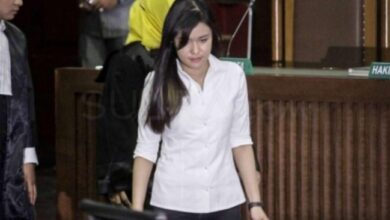Election Contest News: A Comprehensive Guide

In today’s fast-paced world, keeping up with election contest news is essential to stay informed about the changes that shape our societies. Election seasons bring excitement, discussions, and sometimes uncertainty, as candidates from various backgrounds compete to represent the people. This article provides a detailed overview of election contest news, covering the types of elections, the process involved, the impact of these contests, and tips on how to stay updated on the latest developments.
Introduction to Election Contests
Election contest news refers to updates and information regarding political contests, where candidates or parties compete for various government positions. These contests are a core part of democratic societies, providing citizens with the power to choose their leaders. Election contests occur on local, national, and international levels, each serving different roles and bringing diverse leaders to the forefront.
With millions of people worldwide participating in elections, staying informed through election contest news becomes essential. Knowing who is running for office, understanding their policies, and seeing the influence these leaders have helps build a more educated voter base.
Types of Elections Around the World
Elections come in various forms, each with a distinct purpose and structure. Here are some major types of elections, along with their significance:
- Presidential Elections
- These are held in countries where the president is the head of state, like the United States, France, and Brazil.
- Voters select the candidate they believe will best lead the country, making it one of the most followed events in election contest news.
- Parliamentary Elections
- Countries with parliamentary systems, like the United Kingdom, Japan, and India, hold elections to elect representatives to the parliament.
- These representatives then select the prime minister, who acts as the head of government.
- Local Government Elections
- Local elections allow voters to choose their representatives at the municipal, state, or regional level.
- Positions include mayors, council members, and governors who make local policies that directly impact daily life.
- Senate and Congressional Elections
- In the U.S. and similar democracies, these elections select individuals for the legislative branch of government.
- Senate and Congressional members are crucial in lawmaking, and their elections receive extensive coverage in election contest news.
- Referendums and Ballot Measures
- Instead of choosing representatives, referendums allow citizens to vote directly on policies or specific issues.
- This process gives voters a say in important matters, such as constitutional changes or tax rates.
Election TypeDescriptionCountries
Presidential Elections Elect the head of state for the nations USA, France, and Brazil.
Parliamentary Elections Elect representatives for parliament UK, Japan, and India.
Local Government Elections Elect local representatives (mayor, governor) Various.
Senate and Congressional Elections Elect legislative branch representatives USA, Argentina, Philippines
Referendums and Ballot Measures Citizens vote on specific issues Various.
Election Contest News: Importance of Staying Informed
Keeping track of election contest news is beneficial and necessary for citizens. Here are some reasons why staying updated is crucial:
- Informed Voting: Knowing the candidates, their policies, and the overall political climate helps individuals make well-informed voting decisions.
- Understanding Policy Changes: Election outcomes often lead to shifts in policies. Staying informed allows citizens to anticipate these changes and prepare for them.
- Increased Civic Engagement: Knowledge of election contests fosters a sense of responsibility, encouraging people to participate in democracy.
- Improved Political Literacy: Following election news enhances understanding governmental structures, powers, and procedures.
Understanding the Election Process
The election process is a systematic sequence of events that ensure a fair, transparent, and democratic selection of leaders. While each country may follow its unique system, here are the general steps involved:
- Announcement and Campaigning
- Candidates announce their intent to run for office and begin their campaigns. Campaigning includes rallies, debates, interviews, and public speeches.
- Voters begin learning about the candidates, their agendas, and their past achievements.
- Primary and General Elections
- In systems like the U.S., political parties hold primary elections to select their official candidate.
- The general election is the final phase, where citizens vote among the candidates to determine the winner.
- Voter Registration and Education
- Eligible citizens register to vote, and various organizations work to educate the public about the election, encouraging people to participate.
- Voting and Ballot Counting
- On Election Day, registered voters cast their ballots at designated polling stations or through mail-in voting.
- After voting closes, ballots are counted, often followed by results announcements and declarations of victory.
- Certification and Inauguration
- After the results are verified, the winning candidates are officially certified.
- Finally, an inauguration ceremony occurs, marking the beginning of the new officeholder’s term.
Key Elements of an Election Contest
Successful elections depend on several key elements that uphold the integrity and transparency of the process. Here are some essential factors in an election:
- Voter Turnout
- High voter turnout indicates active citizen participation and a healthy democracy.
- Factors affecting turnout include public interest, ease of access to polling stations, and efforts to increase awareness.
- Campaigns and Debates
- Candidates use campaigns to present their vision to the public, often competing on issues like healthcare, education, and the economy.
- Debates allow candidates to defend their views while voters evaluate their leadership capabilities.
- Fair Media Coverage
- Balanced media coverage ensures that voters receive unbiased information about all candidates.
- Media plays a vital role in election contest news, reaching millions of people through news channels, newspapers, and online platforms.
- Voter Rights Protection
- Election laws are established to protect voters from discrimination, coercion, and fraud.
- Countries with strong legal frameworks can uphold free and fair elections, safeguarding democracy.
- Transparent Vote Counting
- Transparent vote-counting procedures reduce the risk of fraud and increase public trust in the election process.
- Often, independent bodies oversee the counting to ensure accuracy.
How to Follow Election Contest News
With the advent of digital media, staying updated on election contest news has become easier than ever. Here are some reliable sources and methods to follow election news:
- Official Government Websites
- National election commissions or departments often publish reliable election updates, schedules, and results.
- These websites provide verified data and can serve as the primary source of information for voters.
- News Websites and Television
- News channels and websites like CNN, BBC, and Reuters offer in-depth coverage of election news and analysis.
- Watching televised debates, interviews, and campaign rallies can provide insights into candidates’ positions on various issues.
- Social Media Platforms
- Platforms like Twitter, Facebook, and Instagram have become important sources for real-time election updates.
- Many official accounts share updates, although it’s essential to follow reliable sources to avoid misinformation.
- Election News Apps
- Dedicated news apps, such as Google News and Feedly, allow users to follow specific topics and receive real-time election updates.
- These apps are highly customizable, making it easy to stay informed.
Impact of Election Contests on Society
Election contests do more than elect leaders; they influence society, culture, and daily life in significant ways. Here’s how:
- Policy and Legislative Changes
- Leaders elected through the contest often implement new policies in areas like healthcare, education, and infrastructure.
- Policy changes can shape society, affecting opportunities, quality of life, and the overall direction of the nation.
- Societal Awareness and Inclusion
- Election seasons raise awareness about issues that matter most to the public, such as social justice, economic growth, and environmental concerns.
- Many candidates champion diverse causes, giving voice to underrepresented groups and leading to greater social inclusion.
- Economic Stability and Growth
- Election outcomes can have a direct impact on a country’s economy.
- Leaders may introduce new fiscal policies, trade agreements, or labor laws that affect job markets, stock markets, and public confidence.
- Strengthening Democratic Values
- Regular, fair elections reinforce the values of democracy, showing citizens that their voice matters.
- They empower individuals to participate in their governance, fostering a sense of ownership and responsibility within society.
Conclusion
Following election contest news is vital to stay informed, engaged, and prepared for the changes elections can bring. By understanding the election process, the types of contests
You may also read
Brook B Taube: A Deep Dive Into the Career of a Financial Visionaryhttps://classicnewsusa.com/brook-b-taube/





